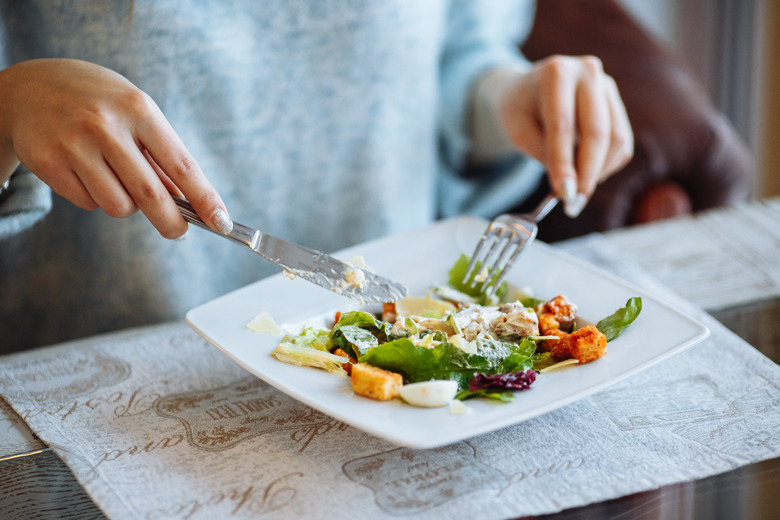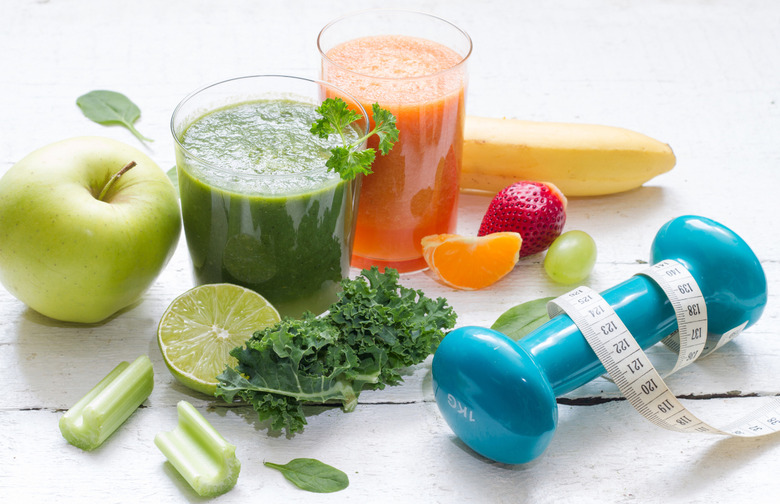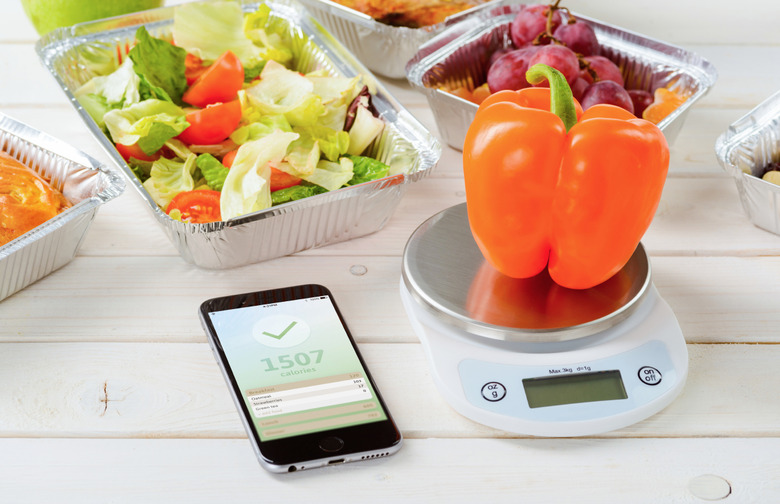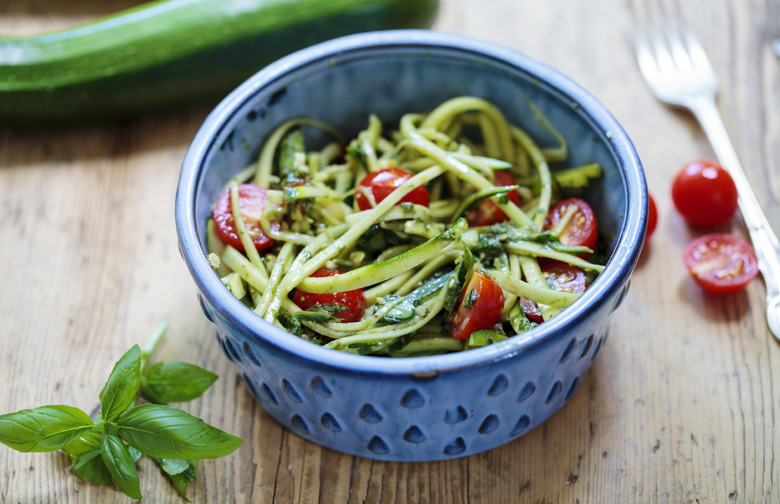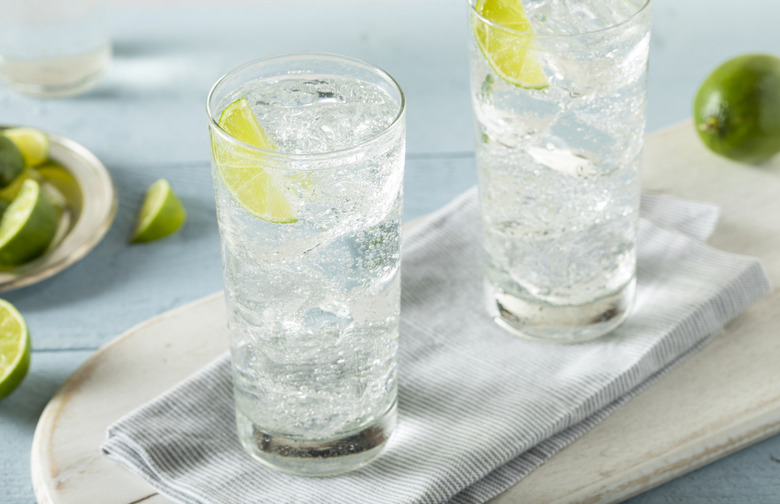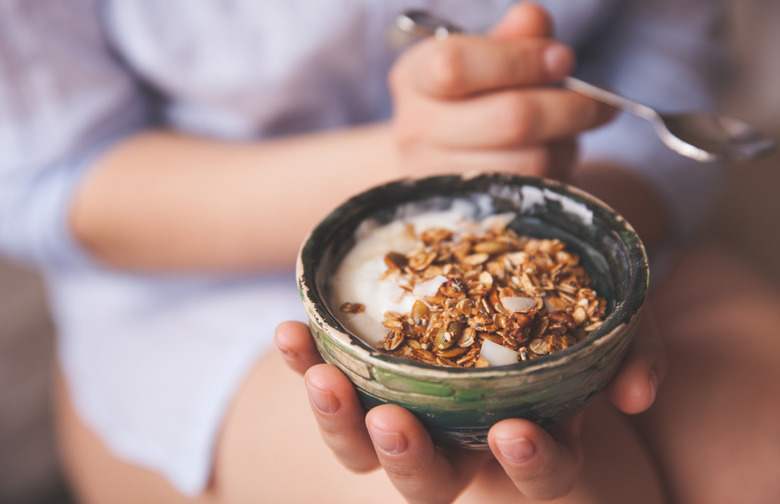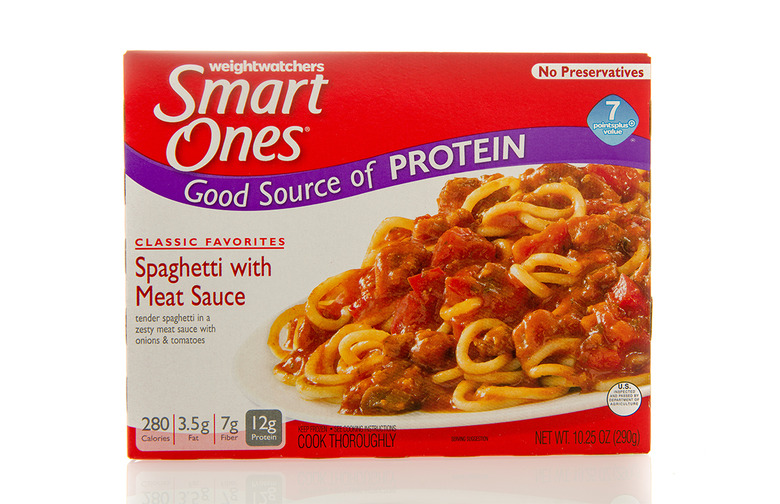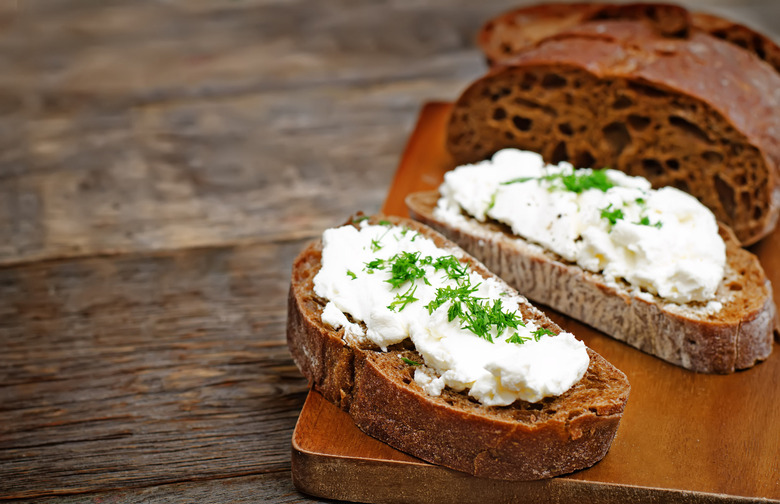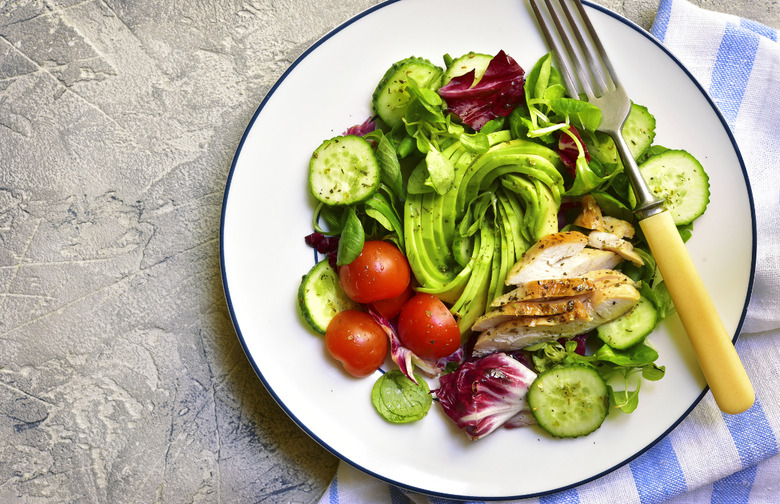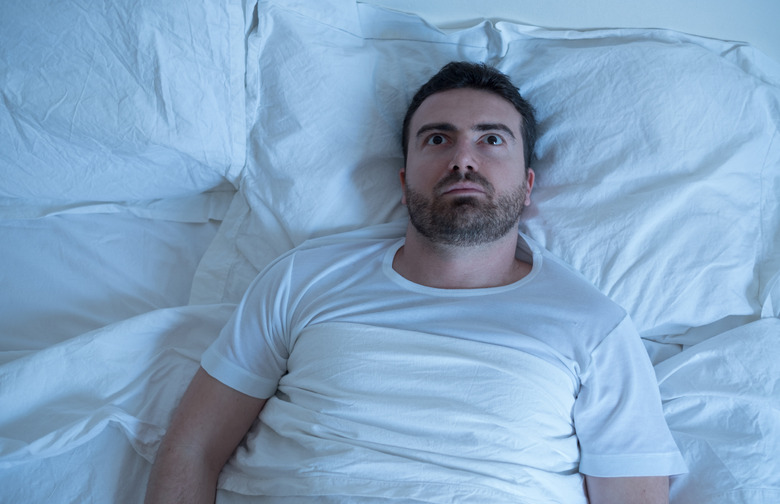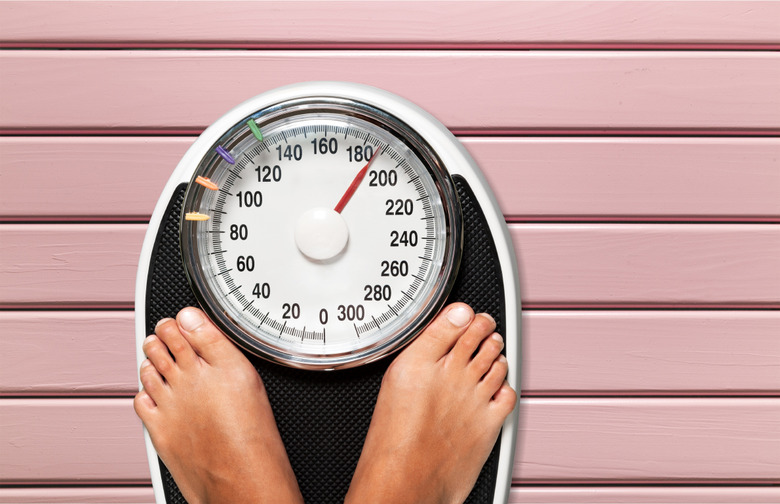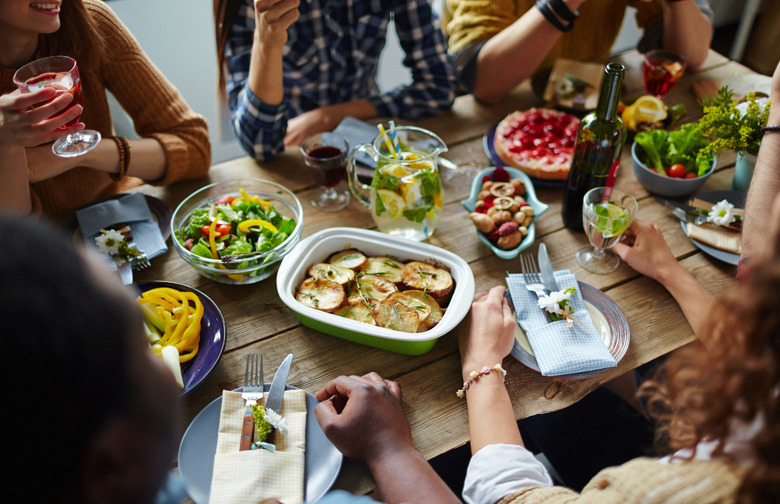18 'Healthy' Habits That Really Aren't Slideshow
We've seen it one too many times: The girl who says one day she's going to "get healthy!" and the next day she's snacking on raw celery and eating a breakfast of plain cereal with skim milk. She might even go running every morning — and she hates running.
This kind of situation is unfortunate to witness — because she has no idea what she's doing wrong.
Unfortunately, "healthy" habits like those aren't helping her get healthy, and they aren't sustainable. You've probably experienced something similar. Maybe you tried slashing back your calorie intake, or always said no to dessert. The odds are pretty high that you did it for about a week or two and then immediately fell back into your old habits.
If adopting these habits were actually a healthy move, you would start feeling better from doing them and you would start to want to. The real healthy habits might not be easy — in the same way that learning how to read isn't easy. But then, word by word, habit by habit, you start to get it. You figure out just what works for you, and it becomes second nature.
In the meantime, so you know what not to do on your journey to a healthier lifestyle, these are some of the things you might try that aren't really healthy at all.
Always Ordering Salad
Oftentimes, the salad is the perfectly healthy choice. However, restaurants tend to vary a lot in their definition of "a salad." At some restaurants, the salads are absolutely loaded with fats and not much else — they might have dressing, nuts, cheese, and fried garnishes. However, tons of fats with a tiny bit of greens don't make a wholesome meal.
On the other hand, some restaurants have salads on the menu that look skimpy at best. Watermelon radish salad? Yeah, that's not dinner. On your plate, you'll likely get a half cup of fruit, some raw vegetables, and maybe a sprinkle or two of cheese drizzled with vinaigrette. You'll leave feeling unsatisfied and hungry.
If it's your whole meal, a healthy salad will have a good balance of carbs (like grains, fruit, or potatoes), protein, and fats.
Often, a much healthier choice at a classic American-style restaurant is a grilled or baked piece of meat with some vegetables and grains. It'll make for a much more filling, tasty, and healthy main course.
Cleansing
Juice cleansing, "detoxing" with tea, or going on any other kind of cleanse for a few days is not a smart idea. In fact, there's no need to detox at all, when our livers and kidneys naturally detoxify our bodies on their own. According to Ranit Mishori, a faculty member in family medicine at the Georgetown University School of Medicine, "Unless there's a blockage in one of these organs that do it day and night, there's absolutely no need to help the body get rid of toxins."
So what do those cleanses do for you? Often, they put your body through a great deal of duress, whether it's through disrupting the gut-friendly bacteria in your stomach, inhibiting the absorption of nutrients and medication, or putting you on a starvation diet.
Counting Calories
"Calories in, calories out" is a myth. Not only are all calories from food not really the same — the body's also smarter than that. Health can't be quantified by a number. You're never going to need some "standard" number of calories on any given day, and counting them (even loosely) can quickly snowball into an unhealthy obsession.
Judge your food intake based on your hunger and fullness cues. That's what eating well for your body should be: Listening to its needs and responding accordingly.
‘Curbing’ Cravings
The more you tell yourself you don't want that slice of cake, the more you're going to want it. It's a psychological game you're bound to lose.
A 2005 study showed that eating "junk" food in moderation actually generates healthier outcomes than restricting these foods entirely. Simply put: Eating chocolate when they want to actually helps people eat less chocolate. Participants who told themselves "no" when they craved it ended up eating way more chocolate later on — not so healthy a habit.
Cutting Carbs
Carbohydrates, on the most basic level, are your body's favorite source of energy. When you cut them out, it has to turn to its other energy stores — that's the thought process that influenced dieters to think, "Cutting carbs will make me burn fat."
This is a misconception. When your body doesn't have the energy it needs, it's going to use less energy and slow down its metabolism. Not only will you likely remain at a similar (or even higher) weight, but you'll also probably start feeling lethargic, break out, and have less effective workouts.
Stick to a nice balance of fruit, starches, and complex carbohydrates for lasting, useful energy.
Drinking Tons of Seltzer
People attempting to lose weight often try and curb hunger by drinking something bubbly. That's where seltzer comes in — but seltzer can't replace a snack. You may fool your taste buds, but you can't fool your metabolism. If you ignore your hunger and refrain from snacking, your metabolism will take a major nosedive, and you'll also probably end up eating way more later. Just grab a healthy snack from your fridge, instead. The nutrients and the calories are likely what you need.
Also, seltzer might be zero calories, but it's not water. It's just not.
The healthiest thing you can drink throughout the day is straight-up H2O. All those sparkling waters and diet drinks are adding chemicals, not-so-natural flavors, and stomach-upsetting carbonation to your day.
Eating a Small Breakfast
If you're a "banana for breakfast" kind of person, we're sorry to burst your bubble: Eating just a banana or a smoothie filled with just a bunch of fruit is actually a crazy unhealthy habit to have. All you're doing is pumping your body with a load of fast-digesting sugar and maybe some fiber — but you're missing the protein and healthy fats your body craves to get your day started.
A banana is going to leave you hungry for more five minutes later. Studies show that people are more likely to maintain a healthy weight if they eat a full, protein-packed breakfast. Spread some peanut butter on your banana and slice it over a bowl of yogurt. Add your banana to oatmeal cooked with egg whites or protein powder. Ditch the banana altogether and make some eggs and avocado toast.
No matter what alternative you choose, just make sure it's giving you the nutrients you need to jolt your metabolism out of its slow overnight mode.
Eating Diet Foods
Diet soda is bad for you. We know this — yet people continue to drink it. "Zero calories" does not come with zero consequences! Diet soda contains chemicals, preservatives, additives... Need I go on?
However, it's not just diet soda that's messing with your health. It's all diet foods. Low fat cheese and yogurt, reduced-calorie bread, and 100-calorie snack packs are all examples of foods you'll never find truly healthy people buying.
Instead, they're reaching for the real food: Whole grains, lean meats, butter and oils, fruits, vegetables, nuts and seeds. They know that these are the foods your body truly craves, and the ones that will satisfy and nourish you to better health.
Eating a Low-Fat Diet
Low-fat diets should stay in the '90s, the more primitive decade where they belong. Dieters didn't know any better back then: There hadn't been as much research on the necessity of fats in a healthy diet as there is now. A whole decade that frowned upon avocados?! Tragic.
Don't fall into the residual "fat is bad" message they left behind. Dietary fat is not the same thing as fat on our bodies, and eating it could actually help you to lose weight, not gain it. Plus, those low-fat yogurts are heavy on the added sugar and artificial sweetener. The best thing for your gut is to stay away.
Eliminating Sugar
Sugar isn't bad, either. Shocking, I know. But really, we should have known this: Fruit has tons of the stuff!
Sugar is a perfectly healthy form of carbohydrate — when consumed in its natural form. Milk, bread, beets, and even carrots all have sugars naturally occurring in their chemical breakdown. Yet all of these foods are good for you. The same could be said of most sugars.
Sugar has gotten such a bad rap because people have a hard time conceptualizing moderation. If a lot of a food is bad, then a little of it must be bad, too, right? Nope. Not really! Eating a whole lot of vegetables can be bad for you (excess fiber can cause some serious digestion issues) but a reasonable serving of vegetables is obviously not. In fact, you need that to stay healthy.
A lot of sugar can have some negative effects, true — though they actually aren't as painful as the effects of too many veggies. But a little sugar in a healthy diet is actually perfectly good for you.
Going Gluten-Free, Paleo, or Doing the Whole 30
There's a reason that paleo and Whole 30 diets have been named the worst according to the US News & World Report. These diets performed the worst on their ability to produce lasting weight loss, provide good nutrition, and prevent diabetes and heart disease.
Gluten isn't bad for you — that's a myth that a low-carb-loving society conjured up. And the paleo diet doesn't actually make any sense, according to biologists. Elimination diets are notorious for their false promises, anyhow, and they have a tendency to cause people to binge on foods they would never otherwise crave. Bingeing on almond butter and avocado? Not healthy.
Going to Bed Hungry
Studies have disproven the belief that eating past a certain time at night causes weight gain. What matters much more in terms of health is the overall health of your diet. If you eat a pint of ice cream every night, of course that's not a healthy behavior. It wouldn't be healthy earlier in the day, either. But eating some hummus with pretzels or an apple and peanut butter? Perfectly reasonable.
Treat yourself now and again and listen to your body. If you're hungry before bed, eat. It'll result in better sleep — which actually has a much larger effect on your metabolism than the nighttime snacks — and a better feeling when you wake up in the morning.
Making Food Rules
Creating hard and fast rules on your eating is both unnecessary and ineffective. Here are some examples of the rules we're referring to: I'm going to eat only one dessert per week. I'm cutting out pizza. Refined sugars are all bad, so I won't eat any.
All of these limitations are unsustainable, and none of them leave room for a healthy, balanced life. What happens when you're at the office and there's a pizza party at lunch one day? If you're saying "no" to pizza indefinitely, you'll miss out on the free food and the priceless opportunity to get to know the people you work with.
What about refined sugars? Try going to a restaurant and ordering anything. There is absolutely no way to definitively discern what they've used in the ingredients of most of their recipes. Are you just never going to go out to a restaurant again? All of those experiences sound limiting and unnecessarily stressful.
You can't put hard-and-fast rules on life. A balanced, fluid, and adaptable perspective is the healthiest you can have in the end.
Setting Weight Loss Goals
Your weight is relative and it can fluctuate with time regardless of your habits. Setting a goal based on a number for weight loss is like setting a goal to have sunny weather every day this week — it's out of your control.
In actuality, your weight has nothing to do with your health. Some things that are in your control and do make sense to talk about in reference to your health are what you do when you deal with stress, how many times you move your body (in whatever way sounds best) during the week, and how often you eat vegetables.
Don't set yourself up for frustration and failure — both of which only serve to generate a lower self-esteem and a greater stress level and actually are a detriment to your health in the long run. Instead, set goals you have the tools to achieve and set goals that truly serve to enhance your day to day life.
Skipping Dinners With Friends
Relationships are an underrated part of health. According to a study conducted at the University of Texas at Austin, "Social relationships — both quantity and quality — affect mental health, health behavior, physical health, and mortality risk."
Social relationships are often created and developed over meals. Eating, and enjoying food, is one of the only things that truly all human beings have in common and it's the most popular way to connect with others.
If you're saying no to dinners at a restaurant because you're nervous about the food or are hesitant about the calories, you're missing out on valuable parts of life. This isn't healthy. True holistic health stretches outside the physical — and a nice balance of both physical and social health is necessary for a fulfilling life.
Skipping Meals
We already told you never to skip breakfast, but this time we're talking about all meals of the day. People — and millennials in particular — are notorious for replacing meals with endless snacks from noon till night. This is especially true of people who are trying to lose weight. The mindset of "Oh, I don't need lunch," quickly turns into "I didn't eat lunch today, so I can eat this whole bag of chips" later.
Quit this cycle — it's bound to leave you always feeling hungry and eventually eating more of unhealthy snack foods than you would have of wholesome, healthy foods at a sit-down meal.
Staying in Every Weekend
Drinking can be pretty caustic, for more reasons than just the embarrassing story you're left telling the next day. It can lower your metabolism by up to 73 percent — however, having one to two drinks one or two nights per week has been shown to have a neutral or even positive effect on overall health.
Plus, weekend nights out are major sources of relationship building, which (as we've mentioned in a previous slide) is a much more important aspect of your health. Social health actually affects your physical health in a number of ways including balancing your hormones, reducing anxiety, and even reducing your risk of mortality.
Suffering Through Your Workouts
Workout routines that hurt or are unenjoyable are inherently unsustainable. It's been scientifically proven: The workouts you love are the ones you'll actually do. If you hate lifting weights but have been told by article after article that you have to, we're here to tell you that you don't have to lift weights.
The same thing goes for running. If you hate striding across mile after mile, don't do it. There are infinitely many ways to move your body — you're bound to enjoy a few of them. Try something new. Go for a walk, take a dance lesson, or join a recreational sports team. You never know what type of movement you'll enjoy until you try it.
The health benefits of exercise apply to all forms of movement, not just running or going to the gym.
And if you're sweating through day after grueling day of cardio, you should know that overdoing cardio workouts is actually sabotaging your health and weight loss goals, not helping them.
